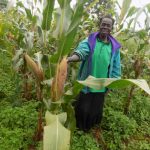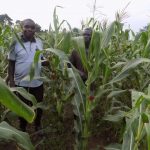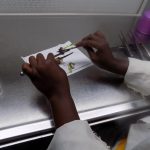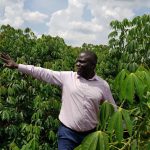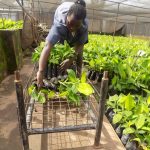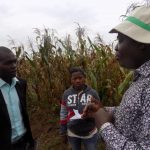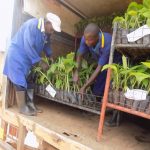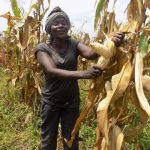Government to tackle climate change in pastoral communities.
2 min readBy Christopher Bendana
Kampala

The Ugandan government working with the Food Agriculture Organization (FAO) and the Global Environment Facility have launched a climate change adaptation project to enhance resilience in pastoral communities
According to a statement released July 7 by FAO, the project, Integrating Climate Resilience into Agricultural and Pastoral Production in Uganda, through a Farmer/Agro-pastoralist Field School approach” held its inception workshop on June 30.
According to the statement, the projects intend to disseminate practical knowledge on climate-resilient agricultural practices that can be adopted at the community level.
It also entails mainstreaming climate resilience into Uganda’s agriculture sector policies and plans.
Thirteen districts that include Abim, Amolatar, Amudat, Amuria, Buyende, Kaberamaido, Kamuli, Katakwi, Kayunga, Luwero, Nakaseke, Nakasongola, and Napak will benefit from this project.
The districts represent five Agro-Ecological Zones (AEZ) and three regions, located within Uganda’s cattle corridor –dryland dominated by livestock production with scarce water and pasture resources.
Freddie Kabango, assistant commissioner soil and water conservation praising the intervention said rain-fed agriculture was exacerbating farmers’ vulnerability to climate change risks. He said this has an impact on food security and livelihoods.
“Despite the availability of water resources in Uganda, the current area under irrigation is low. There is a desire to have a production area under irrigation at 1.5million hectares by 2040; but to achieve this, we need to sustainably use natural resources and come up with innovations and technologies to help farming communities to cope with climate change while meeting their needs” he argued.
In his remarks, FAO Representative in Uganda- Antonio Querido, said that in light of the current challenges caused by climate change in Uganda sustainable agriculture must strike a balance between protecting and sustainably using natural resources while at the same time meeting society’s growing needs by offering decent and resilient livelihoods.
“The project will promote appropriate sustainable food and agriculture interventions, which recognize that farmers can realize greater outputs if facilitated to learn from each other”, he said.
“The Farmer Field School (FFS) approach, which is the key approach for the project, is a practical training methodology grounded in the principles of adult education will, therefore, support and build the capacities of smallholder farmers and rural communities in the adoption of resilient agricultural technologies and livelihoods practices,” he added.
The Shs 25b (USD 6.8milion) project will use among others, the FFS approach to implement climate change adaptation practices.
This approach focuses on group learning by discovery, experimentation and observation, group analysis of results, and better decision-making.
Through this methodology, the project will support farmers to mobilize fellow farmers and pastoralists to access and adopt new technologies and practices, complement traditional extension services and interventions by different stakeholders. Other approaches include value addition, ICT for community engagement, and Gender Action Learning System (GALS) to enhance the role played by women in addressing climate change.
